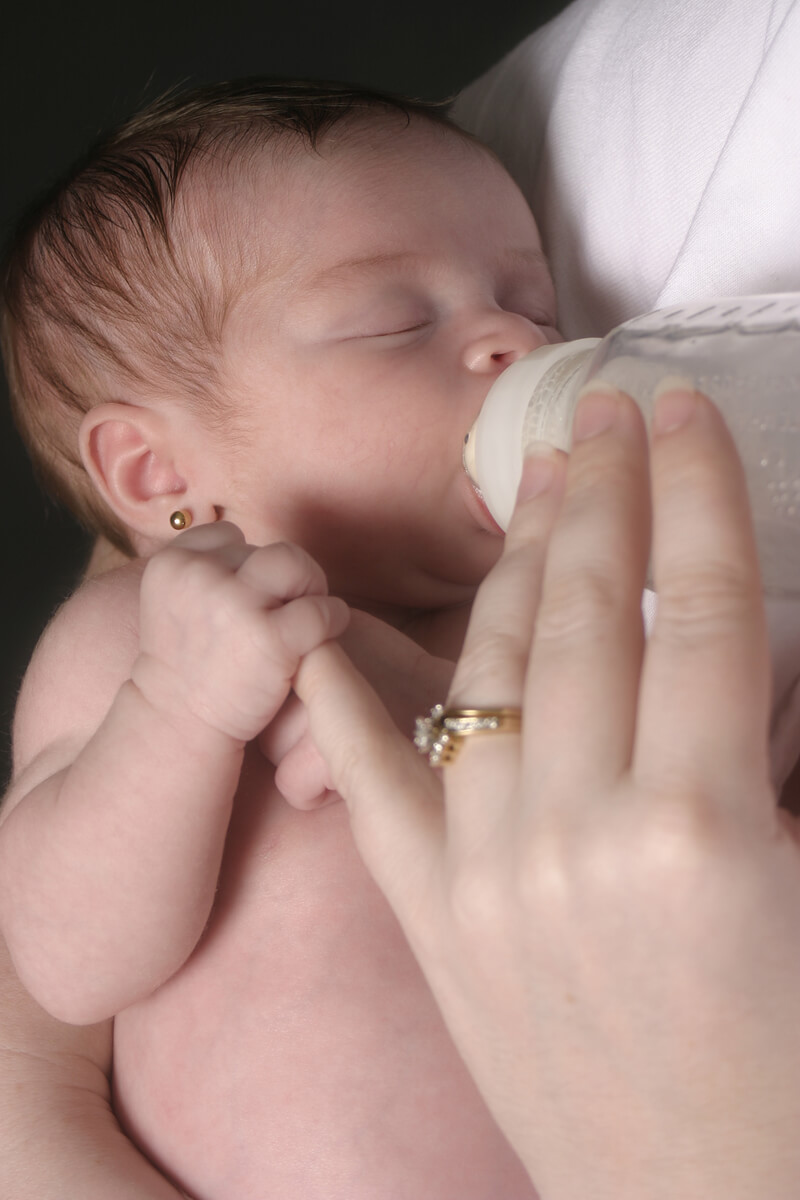
Why Are Bottles in the News?

Why Are Bottles in the News?
A rash of toy recalls has put child safety at the top of parents’ minds, and now another safety issue is in the news: plastic baby bottles and the possible long-term health effects of using them. A recent story in The Washington Post reported that a member of the Maryland state legislature has introduced a bill to ban the sale of polycarbonate plastic bottles in that state, citing concerns raised by the National Institutes of Health. The NIH published a joint statement with the Environmental Protection Agency, stating that some bottles contain a chemical of “high concern” for children.
What’s the Debate?

What’s the Debate?
Most baby bottles are made with polycarbonate plastic, which includes a substance called bisphenol-A, or BPA. A small amount of BPA can “leach” from the walls of the bottle when it is heated, and end up in your baby’s formula. A study conducted in 1998 at the University of Missouri, Columbia, showed an adverse effect in lab rats that ingested BPA. The study concluded that BPA could potentially disrupt important aspects of child development. Furthermore, a newer study conducted at Simon Fraser University, in British Columbia, indicated a link between BPA exposure in the womb and behavioral problems as toddlers.
The Case for Plastic Bottles

The Case for Plastic Bottles
The Food and Drug Administration has repeatedly asserted that polycarbonate plastic bottles are safe for babies to use. Furthermore, James C. Lamb, Ph.D., noted that the Missouri study that started the scare has yet to be replicated. And several critics have questioned the conditions under which BPA can leach into formula in the first place. They contend that under normal usage, this simply is not a concern – that boiling temperatures must be reached and sustained for 20 to 30 minutes before BPA leaching occurs. Furthermore, the same polycarbonate plastic has been used in baby bottles for decades, with no widespread health effects yet attributed to them.
The Case Against Plastic Bottles

The Case Against Plastic Bottles
The scientific consensus is constantly changing. One needs only to look at products that were in widespread use for decades before their adverse properties were discovered (such as lead paint), to understand the danger of presuming we have all the facts. It’s beyond dispute that BPA is a harmful chemical, and that it is present in polycarbonate plastic. Although the bulk of the evidence available suggests no health danger from using such bottles, you may prefer to err on the side of caution, and seek alternatives.
Alternatives to Plastic Bottles

Alternatives to Plastic Bottles
If you are concerned that BPA in your child’s plastic bottle could be harmful, you have a few options. As always, there are trade-offs. You can get a glass bottle, which has no chemical side effects whatsoever. However, glass bottles are susceptible to shattering, which could lead to more immediate safety concerns. You could also try a BPA-free opaque bottle, instead of a transparent bottle made with BPA. You can buy natural products such as those available from Born Free Baby Products, which contain no such chemicals. In that case, you may not be able to tell easily how much liquid your child has consumed. As a parent, it’s your job to determine what makes you the most comfortable.
Using Plastic Bottles: Best Practices

Using Plastic Bottles: Best Practices
Whether or not BPA turns out to be harmful, one point everyone agrees upon is that heating the bottle is theoretically the only way the substance will leach from the plastic into your baby’s formula. In fact, heating the liquid to boiling is generally recognized as necessary for this process to occur, and you would never want to boil your baby’s formula. Most formulas need only to be warmed to room temperature – make sure you read the manufacturer’s directions. If heating is not necessary, but your baby is used to warmed bottles, try using a bottle warmer, or simply run the bottle under warm (not hot) tap water. One more word of caution: The microwave can heat formula unevenly, creating scalding pockets of formula or milk. It’s best not to use the microwave.
Other Products That Contain BPA

Other Products That Contain BPA
A vast array of consumer products contains the same type of polycarbonate plastic that’s used in baby bottles. Many are household items that pose no risk for ingestion, such as compact discs, but be on the lookout for any that you might use in your kitchen – particularly products that you heat on the stove or in the microwave. Popular brands of adult water bottles are made from the same material as baby bottles, as are many food and drink cans. Most dental sealants also contain polycarbonate; although your options may be limited, you should discuss any concerns with the dentist.
Recent studies indicate that BPA may be more prevalent in food products than previously suspected. There’s one quick way to tell whether a product contains BPA: Look for the number inside the recycling arrows. Number 7 plastic contains the polycarbonate material under suspicion.





